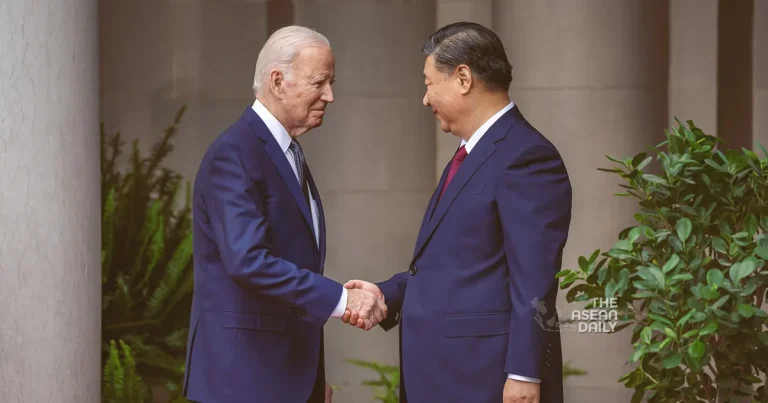18-4-2024 (WASHINGTON) In a scathing rebuke aimed at highlighting the United States’ economic prowess, President Joe Biden labelled China as “xenophobic” while underscoring the Asian nation’s demographic and economic woes during a campaign stop in the crucial swing state of Pennsylvania.
“They’ve got a population that is more people in retirement than working. They’re not importing anything. They’re xenophobic – nobody else coming in. They’ve got real problems,” Biden said of China in remarks delivered to steelworkers in Pittsburgh on April 17.
The President’s comments come on the heels of a phone call with Chinese President Xi Jinping two weeks ago, their first since a face-to-face meeting in November. While overall relations between the two superpowers have stabilised of late, tensions are mounting over Chinese investments in manufacturing that could potentially lead to job losses among blue-collar workers in the United States.
Biden’s remarks stand out as one of his most pointed criticisms of the world’s second-largest economy, which surprisingly grew faster than expected in the first quarter, even as questions persist over the strength of its recovery.
China’s Foreign Ministry, no stranger to retaliating against such barbs, struck a measured tone in its response on April 18. “China wants to ask the US whether it is referring to China, or the US itself,” spokesman Lin Jian said during a daily briefing in Beijing.
In addition to his “xenophobic” jab, Biden called for higher tariffs on Chinese steel and aluminium, part of a series of steps aimed at shoring up the American steel sector. This includes a pledge by the President that Japan’s Nippon Steel would not successfully acquire the Pittsburgh-based United States Steel.
The proposed tariffs would see the US impose new 25 per cent levies on certain Chinese steel and aluminium products as part of an ongoing review, while Biden’s administration also launches a formal probe into China’s shipbuilding industry.
China’s Commerce Ministry swiftly rebuked the US review on April 17, labelling it as “full of false accusations” and “based on the need of domestic politics”.
Biden also took aim at his rival, former President Donald Trump, criticising his policies towards Beijing while in office. “Trump simply doesn’t get it,” Biden said, claiming that it is incorrect to view China as on the rise and the US falling behind.
When asked as he departed Pittsburgh if the steel tariffs would hurt ties with Xi, Biden responded with a curt “no”.
Chinese officials have recently sought to boost investor confidence overseas, after years of strict pandemic curbs and tighter national security controls dented sentiment. Foreign businesses’ direct investment into China plummeted to a 30-year low in 2023, underscoring the challenges facing Beijing.
Xi’s government has expanded visa-free entry to a range of European and Asian nations of late, after he pledged “heart-warming” measures for investors in 2023 during a trip to the United States. However, China has thus far struggled to woo back foreigners after shutting the nation off during the pandemic: The business hub of Shanghai saw 44 per cent fewer foreign visitors in the first two months of 2024 compared with the same period in 2019.
Imports have also been weak, with falling commodity prices and weak domestic demand due to a housing market crisis and other issues undermining Chinese purchases of foreign goods. Imports were up a meagre 1.5 per cent in the first three months of 2024, after a 5.5 per cent drop in 2023.
Biden also vowed to continue efforts to deny China advanced technology like computer chips, which has spurred Xi to invest in becoming more self-sufficient. “They can’t be sent to China because it would undermine our national security,” Biden said. “When I spoke with Xi Jinping, he said, ‘Why?’, and I said, ‘Because you’d use it for all the wrong reasons, so you’re not gonna get those advanced computer chips’.”
As the United States gears up for the 2024 presidential election, Biden’s sharp rhetoric towards China appears to be an integral part of his campaign strategy, aimed at rallying support among working-class voters in key battleground states like Pennsylvania. By portraying China as a faltering economic power plagued by demographic challenges and a xenophobic stance, Biden seeks to bolster his image as a staunch defender of American interests and champion of economic strength.
However, the escalating tensions between the world’s two largest economies raise concerns about the potential fallout from a prolonged trade war and the implications for global economic stability.




